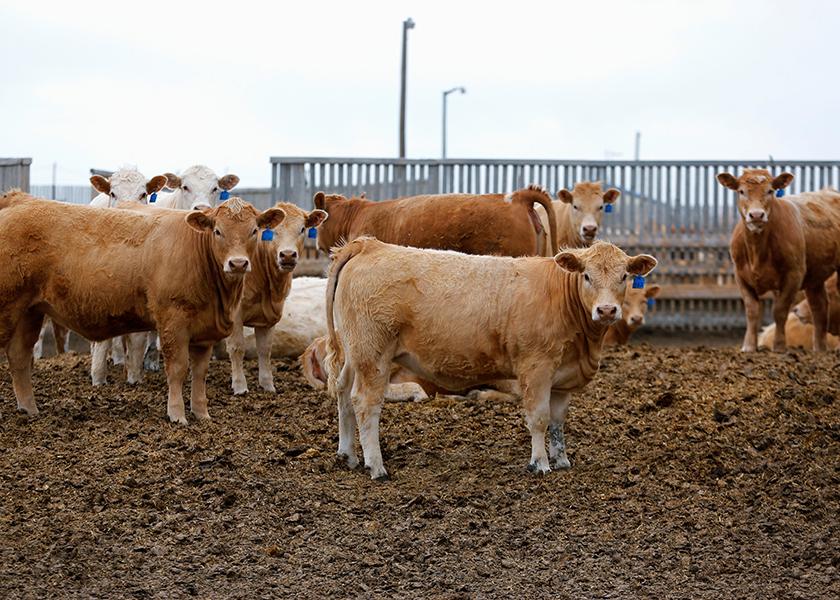Cattle Market Turmoil Gathers Lawmakers' Attention

The political winds in Washington are driving momentum for more oversight of cattle markets. The wide price discrepancy between live cattle prices and wholesale beef prices has given rise to unprecedented cooperation between some cattle and farm organizations, and lawmakers have taken notice.
Specifically, they see that while negotiated cash cattle prices are about $120 per cwt. this week, Choice boxed beef cutout prices traded at $328 per cwt. on Thursday. That’s a 45% increase in wholesale beef prices since March while cattle prices are modestly 5% higher.
A handful of farm-state Senators have been championing cattle market reforms for a while, but now many of their colleagues from urban districts are taking notice, too. The attention-grabber, according to Senator Mike Rounds (R-SD), is the ever-increasing cost of food for consumers.
Rounds told AgriTalk host Chip Flory on Thursday the impact of the market discrepancies are being felt by consumers, and “the amount of money they’re paying at the grocery store and where that money is going” is not readily understood. But, Rounds said, “it’s not getting back to the ranch.”
Rounds and other lawmakers such as Senator John Thune (R-SD) and Rep. Dusty Johnson (R-AL) are calling on Attorney General Merrick Garland to push forward with the Department of Justice investigation into anticompetitive practices in the meatpacking industry.
“Whether or not there are anti-trust activities or market manipulation taking place, we don’t know,” Rounds said. But, he added, “we think it is (taking place).”
Lawmakers have also introduced two legislative packages to require more transparency in pricing and terms of cattle purchases in an effort to give cattlemen more leverage in transactions. Republican Senator Deb Fischer of Nebraska, who sponsored one, told Bloomberg she is “very optimistic” some version of an enhanced disclosure bill will pass Congress this year.
To date, the Biden Administration has been relatively quiet regarding cattle market turmoil over the past several months. However, Washington has seen a backlash against Big Tech in recent months which may fuel broader concerns about corporate behemoths abusing dominant market positions.
A clue to White House thinking on the turmoil in the cattle markets may be found in comments made to Bloomberg by “a senior USDA official” who spoke on condition of anonymity for a story published Thursday.
“The Biden administration views the pricing patterns in beef processing as evidence that concentration is having damaging effects on the supply chain and rural America,” Bloomberg reported citing the anonymous senior USDA official. “USDA officials are looking at ways to use their regulatory authority to reduce the imbalance in market power, the official said.”
Which, wow! That statement raises many more questions. For instance, exactly what regulatory authority does USDA have, and how might they use it?
One authority that USDA currently has is Mandatory Price Reporting, which was established in 1999 and mandates price reporting for cattle, boxed beef, swine and lamb. That rule was reauthorized last year, but only for one year rather than the customary five years. Without congressional action, MRP will expire on September 30 of this year.
Cattle groups are calling on lawmakers to expedite this year’s LMR reauthorization and include formula-based prices subject to the same reporting requirements as negotiated cash price and the creation of a contract library.
USDA is not oblivious to the turmoil in cattle country. The agency recently announced it will host a series of three live educational webinars about the its livestock mandatory reporting program over three consecutive days in June. The webinars will be held June 8-10.
Representatives from USDA’s Agricultural Marketing Service and Colorado State University will cover live cattle and boxed beef reports and how to use these marketing tools.
This webinar series (Zoom) is open to the public. Pre-registration is required.







